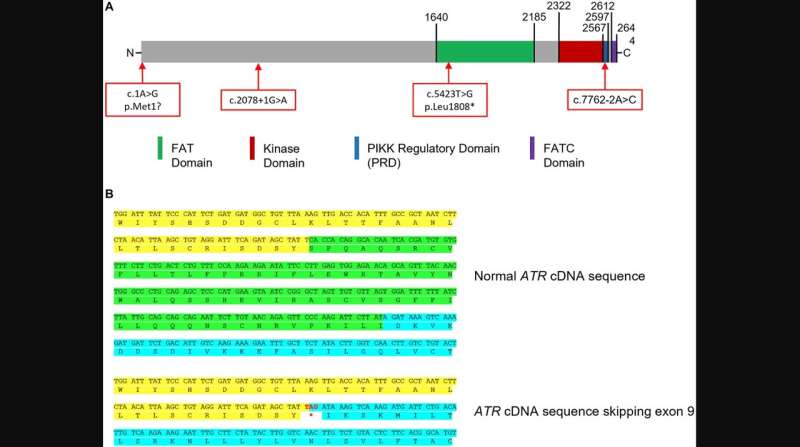Extreme phenotype approach identifies rare ATR variants as potential male breast cancer susceptibility alleles

In oncogenetics, some patients could be considered as “extreme phenotypes,” such as those with very early onset presentation or multiple primary malignancies, unusually high numbers of cancers of the same spectrum or rare cancer types in the same parental branch. For these cases, a genetic predisposition is very likely, but classical candidate gene panel analyses often, and frustratingly, remains negative.
In a new study, researchers used a combination of exome sequencing (ES), direct sequencing of ataxia telangiectasia and RAD3-related (ATR) in a replication cohort and prospective screening, followed by functional investigations, to report the identification of new candidate variants of ATR as predisposing to breast cancer (BC), including male breast cancer (MBC). The article, titled “The ‘extreme phenotype approach’ applied to male breast cancer allows the identification of rare variants of ATR as potential breast cancer susceptibility alleles,” is published in the journal Oncotarget.
“In the framework of the EX2TRICAN project, exploring unresolved extreme cancer phenotypes, we applied exome sequencing on rare familial cases with male breast cancer, identifying a novel pathogenic variant of ATR,” say the researchers.
ATR has already been suspected as being a predisposing gene to breast cancer in women. The researchers next identified three additional ATR variants in a cohort of both male and female with early onset and familial breast cancers (c.7762-2A>C; c.2078+1G>A; c.1A>G). Further molecular and cellular investigations showed impacts on transcripts for variants affecting splicing sites and reduction of ATR expression and phosphorylation of the ATR substrate CHEK1.
This work further demonstrates the interest of an extended genetic analysis such as exome sequencing to identify very rare variants that can play a role in cancer predisposition in extreme phenotype cancer cases unexplained by classical cancer gene panels testing.
“In conclusion, this work highlights the possible implication of ATR variants in male and female BC predisposition and shows the importance of extended genetic analysis in unsolved extreme phenotype cancer cases to identify rare alleles of biologically relevant candidate genes of cancer predisposition,” say the researchers.
More information:
Martin Chevarin et al, The “extreme phenotype approach” applied to male breast cancer allows the identification of rare variants of ATR as potential breast cancer susceptibility alleles, Oncotarget (2023). DOI: 10.18632/oncotarget.28358
Journal information:
Oncotarget
Source: Read Full Article



